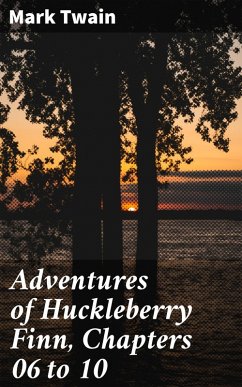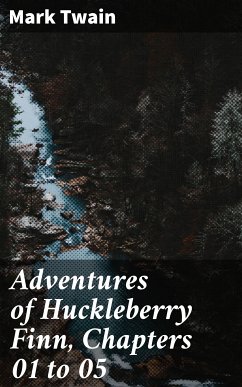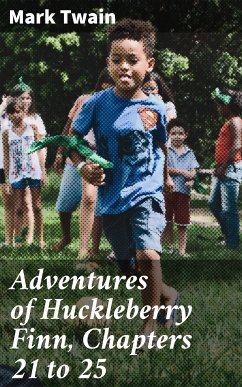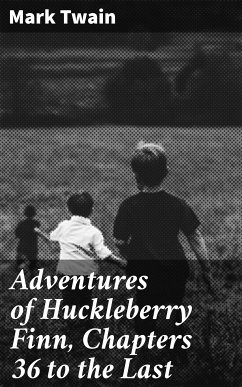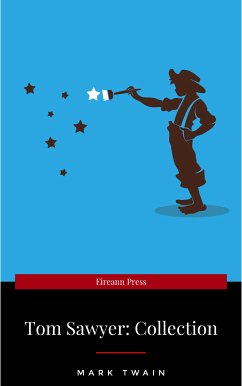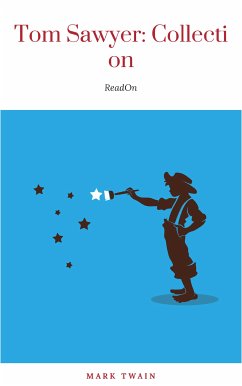
Adventures of Huckleberry Finn, Chapters 26 to 30 (eBook, ePUB)
A Journey Through the American South: Huck Finn's Moral Dilemmas and Society's Complexities
Versandkostenfrei!
Sofort per Download lieferbar
0,49 €
inkl. MwSt.
Weitere Ausgaben:

PAYBACK Punkte
0 °P sammeln!
In the pivotal Chapters 26 to 30 of Mark Twain's seminal work, "Adventures of Huckleberry Finn," the narrative delves deeply into the complexities of human morality, social stratification, and the poignant struggles of identity. Twain'Äôs prose is rich with vivid imagery, colloquial language, and satirical wit, which together create a vivid portrayal of life along the Mississippi River. Here, the protagonist, Huck Finn, grapples with the contradictions of his upbringing and the moral dilemmas that arise from friendship, loyalty, and societal expectations, showcasing Twain'Äôs masterful abi...
In the pivotal Chapters 26 to 30 of Mark Twain's seminal work, "Adventures of Huckleberry Finn," the narrative delves deeply into the complexities of human morality, social stratification, and the poignant struggles of identity. Twain'Äôs prose is rich with vivid imagery, colloquial language, and satirical wit, which together create a vivid portrayal of life along the Mississippi River. Here, the protagonist, Huck Finn, grapples with the contradictions of his upbringing and the moral dilemmas that arise from friendship, loyalty, and societal expectations, showcasing Twain'Äôs masterful ability to intertwine humor with serious social commentary. Mark Twain, born Samuel Clemens, was profoundly influenced by his experiences in the American South and the myriad social issues of his time, including slavery and racial injustice. His keen observations of human nature and society are infused in the development of Huck's character, who embodies the conflict between societal norms and innate morality. Twain's own background as a riverboat pilot further shapes the atmospheric and thematic essence of the narrative, making the river a dynamic symbol of freedom and societal critique. I highly recommend this section of Twain's work to readers interested in American literature'Äôs evolution, as it not only exemplifies the intricacies of character development and thematic depth but also serves as a critical lens into the period'Äôs societal values. Twain'Äôs insights remain relevant today, inviting readers to confront their own moral considerations against the backdrop of an evolving America.
Dieser Download kann aus rechtlichen Gründen nur mit Rechnungsadresse in A, B, BG, CY, CZ, D, DK, EW, E, FIN, F, GR, H, IRL, I, LT, L, LR, M, NL, PL, P, R, S, SLO, SK ausgeliefert werden.





